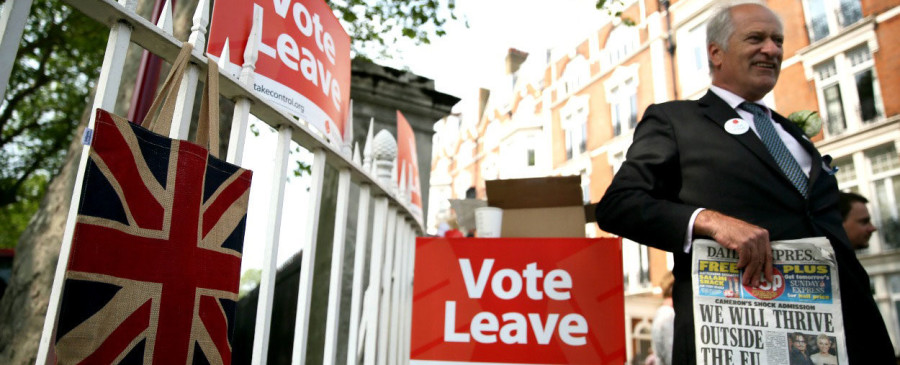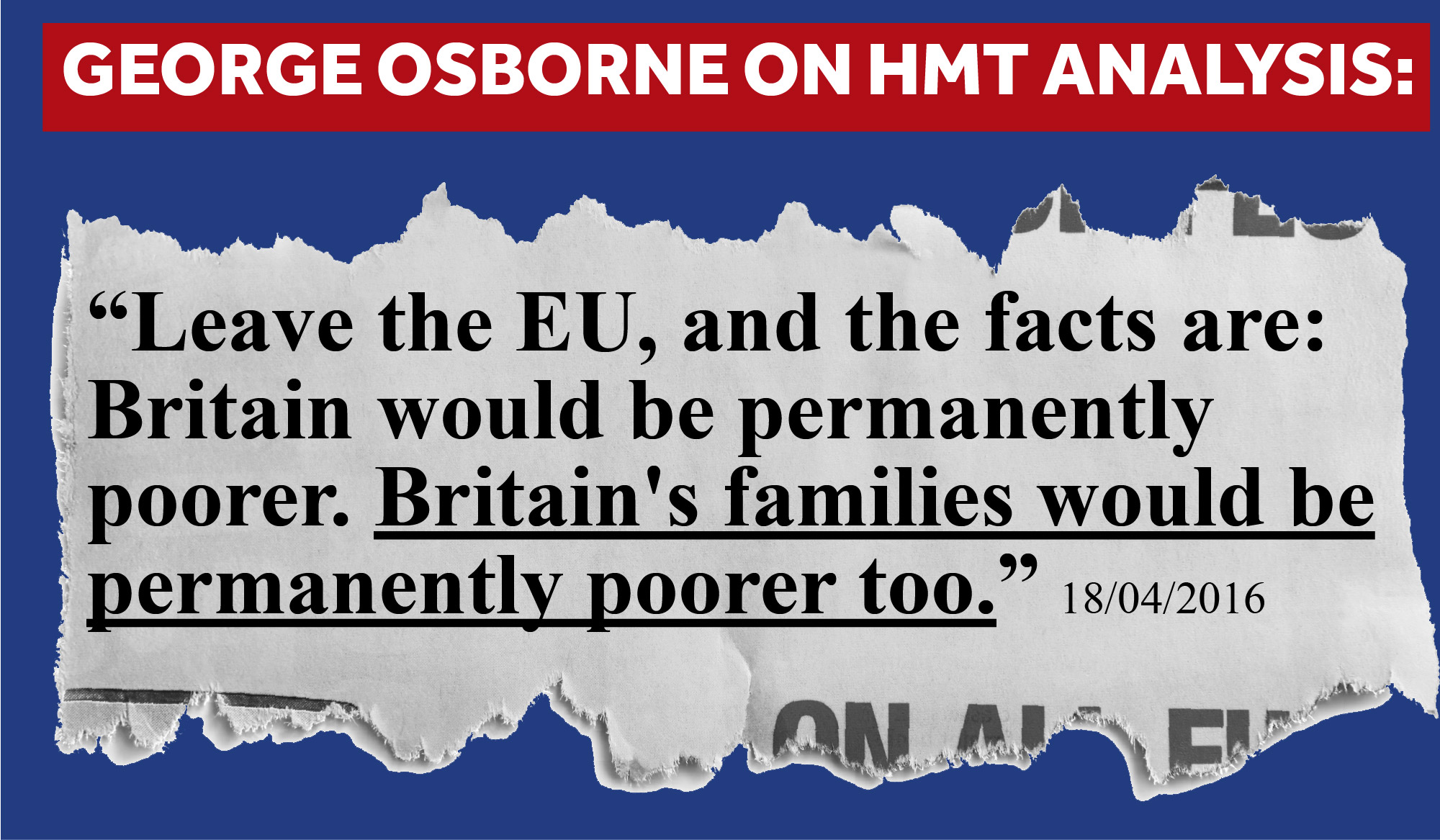The UK says FU to the EU and Cameron

This is the third article concerning the British Referendum to Bremain or Brexit.
The purpose of these articles are to inform the readers of the costs and benefits of remaining (Bremain) or exiting (Brexit) the European Union. Compare this struggle to what is happening in America. Much of the background information was written in the first article:
The votes have been cast and the people have spoken.
The British citizens have wisely rejected the European Union and have elected to remain a sovereign nation. The polls indicated the people were evenly divided on the costs and benefits of exiting the European Union. They rightly decided they are better off to rule themselves as opposed to being governed by a gang of meddlers who have little or no knowledge of what is best for the British people.
No nation state has ever left the EU. Greenland, one of Denmark's overseas territories, held a referendum in 1982, after gaining a greater degree of self- government. Greenland voted by 52 to 48 to exit, which it duly did after a period of negotiation.
The majority of British citizens have astutely elected to remain subjects of the United Kingdom and have decided that to remain in a USSR type organization is not in their best interests. Following the whims and wishes of unelected administrators didn’t sit well with the Brits, at least not with ones who understand the grasp of serfdom to a made-up kingdom of self-serving czars.
 Cameron is CAMexit
Cameron is CAMexit
The voters of the United Kingdom said they’ve had enough of being part of a political project that envisioned an eventual United States of Europe. They gave the European Union the boot by a 52-48 vote. The consequences of this vote, are bound to impact an entire generation.
Prime Minister David Cameron announced his resignation outside of 10 Downing Street on June 24, 2016. He will remain as a caretaker, occupying the post until a new prime minister is selected. Cameron hopes that process could be completed sometime in October
Britain Stronger in Europe
The main cross-party group campaigning for Britain to remain in the EU was headed by former Marks and Spencer chairman Lord Rose. It was backed by key figures from the Conservative Party, including Prime Minister David Cameron and Chancellor George Osborne as well. Most Labour MPs, including party leader Jeremy Corbyn and Alan Johnson, who is running the “Labour In for Britain” campaign, the Liberal Democrats, Plaid Cymru, the Alliance party and the SDLP in Northern Ireland, and the Green Party wanted to remain in the EU.
Funding the campaign were: “Britain Stronger in Europe” who raised £6.88m boosted by two donations totaling £2.3m from the supermarket magnate and Labour peer Lord Sainsbury. Other prominent Remain donors included hedge fund manager David Harding (£750,000), businessman and Travelex founder Lloyd Dorfman (£500,000) and the Tower Limited Partnership (£500,000). The SNP is running its own remain campaign in Scotland as it does not want to share a platform with the Conservatives. Several smaller groups have also registered to campaign.
Vote Leave
A cross-party campaign had the backing of senior Conservatives such as Michael Gove and Boris Johnson plus a handful of Labour MPs, including Gisela Stuart and Graham Stringer, plus the UKIP's Douglas Carswell and Suzanne Evans, and the DUP in Northern Ireland. Former Tory Chancellor Lord Lawson and SDP founder Lord Owen were also involved. It has a string of affiliated groups such as Farmers for Britain, Muslims for Britain and Out and Proud, a gay anti-EU group, aimed at building support in different communities.
“Vote Leave” has raised £2.78m. Its largest supporter is businessman Patrick Barbour, who gave £500,000. Former Conservative Party treasurer Peter Cruddas gave a £350,000 donation and construction mogul Terence Adams handed over £300,000. UKIP leader Nigel Farage is not part of Vote Leave. His party is running its own campaign. The Trade Union and Socialist Coalition is also running its own out campaign. Several smaller groups have also registered to campaign.
The Cost to Remain in the EU
The UK is one of 10 member states who pay more into the EU budget than they get out, only France and Germany contribute more. In 2014/15, Poland was the largest beneficiary, followed by Hungary and Greece.
The UK also gets an annual rebate that was negotiated by Margaret Thatcher, and money back, in the form of regional development grants and payments to farmers, which added up to £4.6bn in 2014/15.
According to the latest Treasury figures, the UK's net contribution for 2014/15 was £8.8bn - nearly double what it was in 2009/10.
The National Audit Office, using a different formula which takes into account EU money paid directly to private sector companies and universities to fund research, and measured over the EU's financial year, shows the UK's net contribution for 2014 was £5.7bn
How long will it take for Britain to leave the EU?
The minimum period after the vote to leave is two years. Britain will continue to abide by EU treaties and laws, but not take part in any decision-making, as it negotiated a withdrawal agreement and the terms of its relationship with the now 27 nation bloc. In practice it may take longer than two years, depending on how the negotiations go. Sounds like Taxation without Representation.
What about business and the economy?
Most big businesses were in favor of Britain staying in the EU because it makes it easier for them to move money, people and products around the world. BT chairman Sir Mike Rake, a recent CBI wholly, says there are "no credible alternatives" to staying in the EU. But others disagree, such as Lord Bamford, chairman of JCB, who says an EU exit would allow the UK to negotiate trade deals as our country "rather than being one of 28 nations". Many small and medium-sized firms would welcome a cut in red tape and what they see as petty regulations. The British Chambers of Commerce says 55% of members backed staying in a reformed EU.
Will UK citizens need special permits to work in the EU?
This will depend on the kind of deal the UK agreed with the EU after exit. If it remained within the single market, it would almost certainly retain free movement rights allowing UK citizens to work in the EU and vice versa. If the government opted to impose work permit restrictions, as UKIP wants, then other countries could reciprocate, meaning Britons would have to apply for visas to work.
If EU nationals want to work in the UK it will depend on whether the UK government decided to introduce a work permit system of the kind that currently applies to non-EU citizens, limiting entry to skilled workers in professions where there are shortages.
The European Court of Human Rights
Can the UK deport terror suspects to their own countries to face charges without being overruled by the European Court of Human Rights (ECHR) in Strasbourg? The ECHR is not a European Union institution. It was set up by the Council of Europe, which has 47 members including Russia and Ukraine. So quitting the EU would not exempt the UK from its decisions. The EU apparently supports the free movement of terrorist suspects. More reasons for Brexit and exit from the ECHR.
The UK government is committed to repealing the Human Rights Act which requires UK courts to treat the ECHR as setting legal precedents for the UK, in favor of a British Bill of Rights. As part of that, David Cameron is expected to announce measures that will boost the powers of courts in England and Wales to over-rule judgements handed down by the ECHR. Hip, hip hooray for common sense.
Leaving the EU is a massive move. Far more important than who wins a general election. It will set the nation free. Do you believe a small, limited, close to home government is best? Or do you believe a large, central government can best govern a nation or group of nations?
The AU/UN/EU coming to USA = FU
A similar movement is afoot in the USA. “Open Border” advocates desperately want globalization. They despise sovereignty. They want equality of results, not equality of opportunity. Why? It is much easier to control us that way, just like controlling all in Europe through the European Union.
In America, after residents of the UK voted today to leave the European Union, the movement for an independent Texas gain serious momentum. Thousands of Texans are calling for a "Texit.” Let’s hope the American people don’t follow the idiotic ideology of globalization and force us to vote for an “Amexit.”
Next, it will be the “American Union.” An “even closer union” of all countries in North America, Central America, South America and the Caribbean. All with a common currency; free movement; open borders; free health care; and the dilution, or elimination, of the United States Constitution. It will start with 5 or 6 countries and grow to 35. A population of one billion people living on 16.4 million miles of land and islands. “We the People” must decide on this in the November General Election. A Clinton presidency will ensure this “AU” the forerunner of an all-powerful United Nations. The Muckster is ahead of this issue. It will happen behind closed doors in a New York Minute. That’s the HRC way!
In 20/20: A Clear Vision for America, I urged the US to leave the UN and the UN to leave the US. I encouraged the UK to Brexit. It is the same principle.
God bless our British brothers and sisters. Give them guidance to make the right decision.
God Bless us all and God Bless America. Our country, our Constitution, our culture, our civilization and our children need you now more than ever.
Earlier articles related to the EU Decision Include:
 Finally, an author who brings you solutions, instead of problems.
Finally, an author who brings you solutions, instead of problems.
Americans have lost faith in their overreaching federal government. “We the People” don’t need to be overregulated or have their taxes misspent. Americans are victims of a crumbling economy, high prices and stagnant wages. They view government as bloated and politicians as corrupt.
They do not trust the leadership at any level. They see politicians of both parties as self-centered narcissists whose only objective is re-election. The author is like you, with one principal difference and 20 reasons for optimism. His “Vision” of America is “clear.” It is a vision of the Constitution and America the way it could be, the way it should be. The author’s eyesight is twenty-





Recent Comments